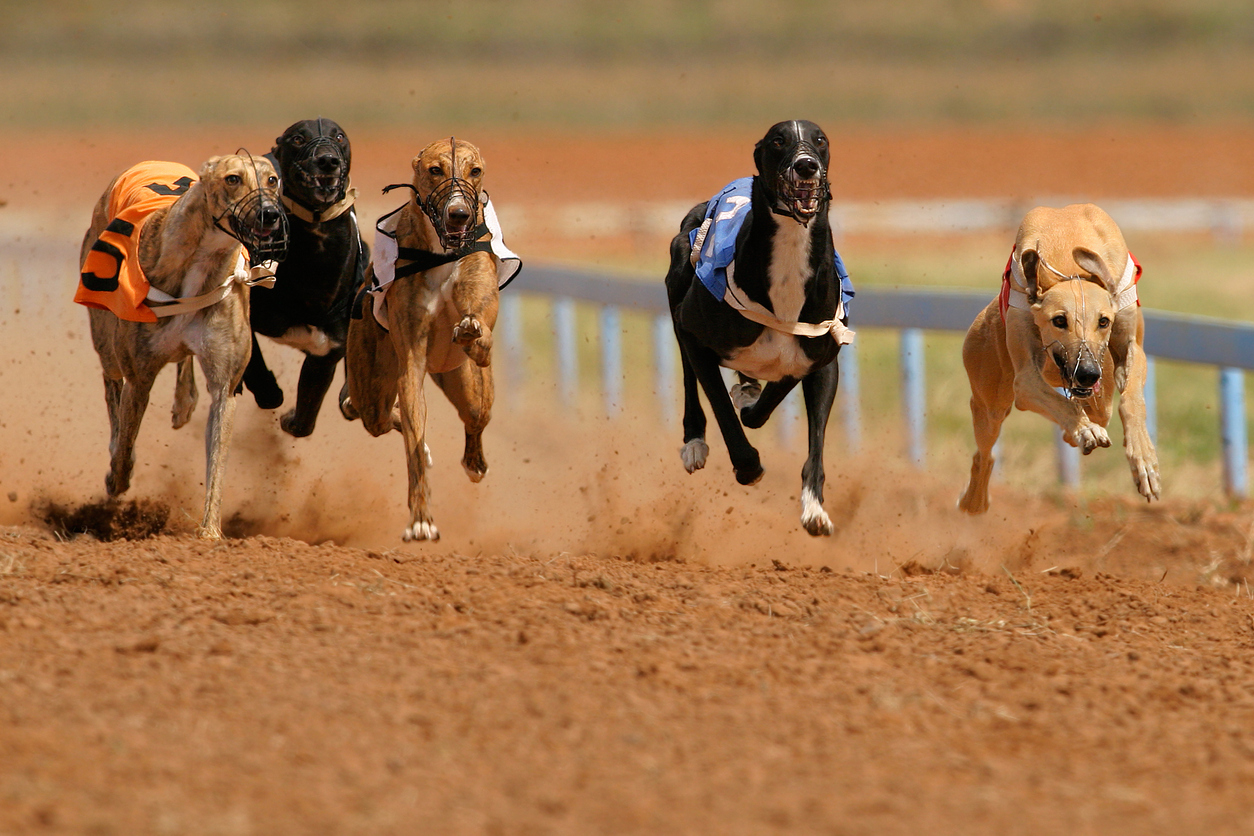Greyhounds trained or racing in Scotland have tested positive for banned drugs such as cocaine and amphetamine dozens of times.
Steroids, beta blockers and prohormones – used by bodybuilders – were among other prohibited substances found in the bloodstreams of greyhounds at Shawfield Stadium in Glasgow since 2009.
Five of the 28 positive tests at Shawfield – Scotland’s only licensed track – involved cocaine, which is potentially fatal for dogs and can lead to seizures, strokes and heart attacks.
As well as those incidents, a trainer based in Edinburgh who races in England had three dogs tested positive for banned substances. Critics of greyhound racing are calling for the sport to be banned.
Aside from greyhounds being given banned drugs, almost 932 racing dogs died last year in the UK, with 242 deaths happening trackside. Another 4,963 greyhounds suffered injuries.
The Greyhound Board of Great Britain (GBGB) insists, however, that the welfare of greyhounds remains its highest priority, adding that drug testing at Shawfield has been increased by 50 per cent recently.
Shawfield, in Rutherglen, Glasgow, is Scotland’s only registered greyhound racing stadium, although there is an unlicensed, so-called flapper track at Thornton Stadium, near Kirkcaldy in Fife.
Details of doping offences at Shawfield are recorded by the GBGB, which has been accused of failing to tackle drug cheats and being negligent about animal welfare issues.
Some trainers caught for offences at Shawfield were repeat offenders but were only reprimanded or suspended. Of the 28 doping offences recorded, only four trainers were banned. No further action was taken on five occasions.
Last year there were 10 positive dope tests. There have been two cases in 2019, both involving the same trainer, Thomas Jordan.
One of his dogs, Milesian Sandy, tested positive for cocaine in May. Another greyhound, Leaha Millie, tested positive for a beta blocker called atenolol in March.
Jordan was fined £750 for the first breach and lost his licence after the second.
Another repeat offender is Angus McCrae whose dogs Blue Lad and Trapezius both tested positive for cocaine in June 2018. Blue Lad performed poorly but Trapezius won a race by two-and-three-quarters lengths at a starting price of 3/1.
McCrae denied giving drugs to his dogs but received a £1,500 fine and a 12-month suspended training ban.
He told the GBGB that a friend had borrowed his van and spilled cocaine on bones, which the greyhounds may have eaten. McCrae told The Sunday Post that he was on holiday in Corfu at the time.
“I wasn’t in the country. I was on holiday. It’s (Shawfield) the safest track in Britain, by a mile,” he said. “I don’t know why you’re picking on Scotland for because it’s the safest track in the UK.”
When asked if there was a problem at Shawfield with cocaine, he said: “I don’t know, I don’t even know where they get it from.”
Edinburgh-based trainer Gary Carmichael was reprimanded in 2016 and fined £1,000 after two of his dogs were found to have banned substances in their bloodstream.
Carmichael’s dogs raced at Belle Vue, in Manchester, and Newcastle. One of his greyhounds, Sporting Melody, tested positive for meloxicam while a dog named Chuggington was found to have ampyrone/4-methylaminoantipyrine in its system. Both are pain relievers.
Carmichael denied giving his dogs drugs. He said: “Meloxicam is given to dogs as pain relief and somehow it got into the dog’s system. I don’t know how.”
He was cleared of any wrongdoing in October 2018 when a dog, Bandicoot Libby, tested positive for sparteine, an antiarrhythmic agent.
The GBGB accepted his explanation that the dog ate a plant at his kennels called scotch broom.
Campaigners are calling for a ban.
Say No To Greyhound Racing In Scotland said: “The law is being broken with the use of Class A drugs and our animal welfare laws are being breached. Our MSPs are in a position to take action to prevent this criminality and abuse and the fact they are choosing not to is something that will concern people.”
The GBGB said there is no place in the sport for anyone who “purposely endangers the safety or wellbeing of a greyhound”.
“The welfare of every greyhound that races at Shawfield Stadium, as with all our tracks, is monitored closely. Each greyhound is inspected by a vet both before and after each race and our Stipendiary Stewards ensure that our Rules of Racing are strictly adhered to by all involved,” GBGB added.
“Alongside this, we have a robust and comprehensive testing regime across our tracks. Greyhounds are subject to regular, random testing both before and after racing. These tests look to identify a wide range of prohibited substances in line with our Rules of Racing.
“As well as issuing notices to all trainers on how to avoid cross and environmental contamination, we have increased the number of samples being taken at Shawfield by 50% and we are pleased to report that positive findings have since ceased. We will continue to work closely with the stadium to ensure this continues.”
This story was published by The Sunday Post on 22 September 2019.














